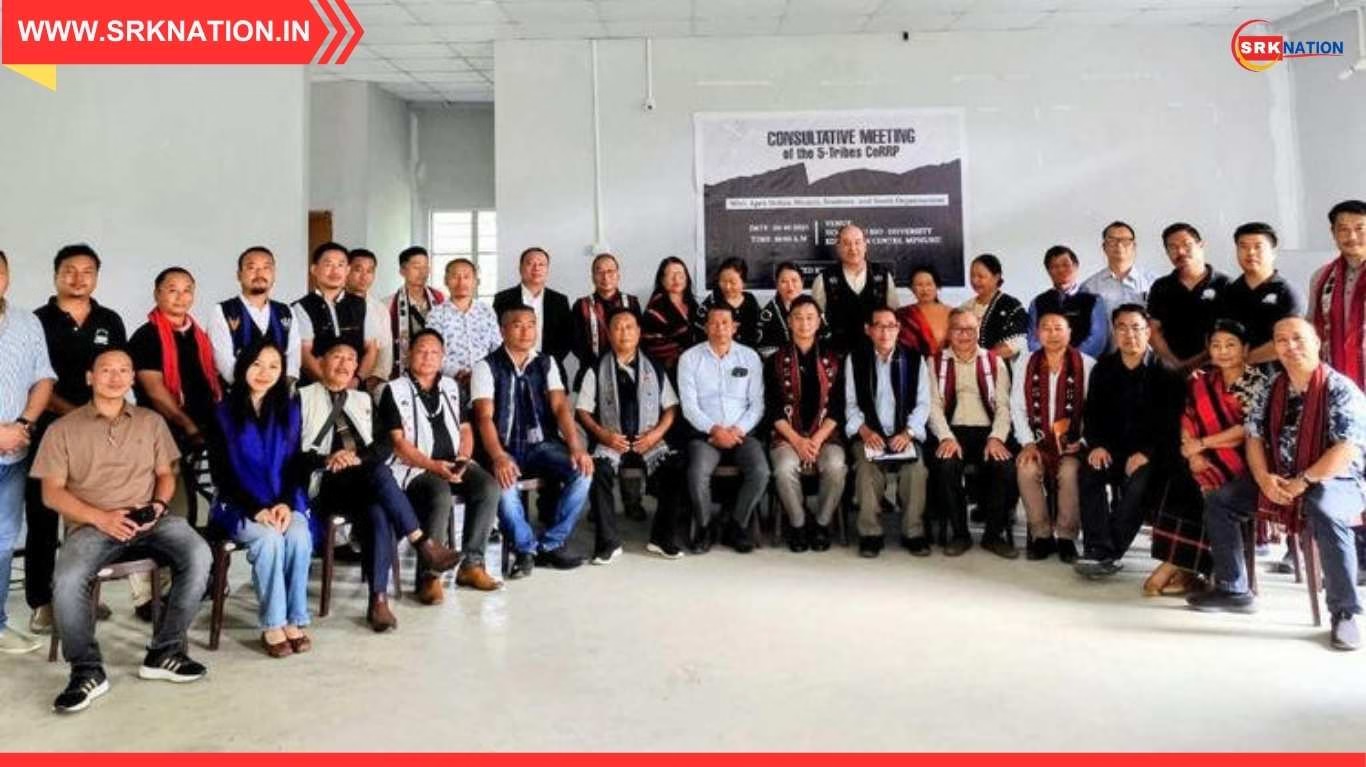In a landmark development for Nagaland’s socio-political landscape, five apex tribal bodies have officially lifted their boycott of state government functions following the Nagaland Cabinet’s acceptance of key demands related to the state’s reservation policy. The decision was formalized during a consultative meeting of the Five Tribes Committee on Review of Reservation Policy (CoRRP) held on October 20, 2025, at the Sendenyu Biodiversity Education Centre in Tseminyu District. The meeting was attended by representatives of the Ao, Angami, Lotha, Rengma, and Sumi tribes, along with their frontal organizations.
The Cabinet’s approval to rename the Job Reservation Commission as the Commission for Review of Reservation Policy and broaden its Terms of Reference beyond employment was seen as a direct response to the representation submitted by CoRRP on September 24, 2025. The move is expected to usher in a more inclusive and consultative framework for addressing tribal concerns related to reservation, governance, and equitable development.
🧠 Key Highlights of the Policy Breakthrough
| Element | Details |
|---|---|
| Date of Cabinet Decision | October 16, 2025 |
| Tribal Bodies Involved | Ao, Angami, Lotha, Rengma, Sumi |
| Committee Name | CoRRP (Committee on Review of Reservation Policy) |
| Boycott Lifted | October 20, 2025 |
| Key Reform Accepted | Renaming of Job Reservation Commission |
| Expanded Scope | Beyond employment to include broader reservation review |
| Government Response | Accepted representation submitted on September 24, 2025 |
The tribal bodies confirmed that their non-participation in state functions has officially ended, signaling a renewed commitment to dialogue and cooperation.
📊 Timeline of Events Leading to Resolution
| Date | Event Description |
|---|---|
| September 24 | CoRRP submits formal representation to Nagaland Cabinet |
| October 16 | Cabinet accepts key demands and renames commission |
| October 20 | Tribal bodies hold consultative meeting and lift boycott |
The resolution marks the end of months-long tensions and sets a precedent for participatory policy-making in Nagaland.
🗣️ Reactions from Tribal Leaders, Government Officials, and Civil Society
- Tesinlo Semy (CoRRP Convenor): “This is a victory for tribal unity and democratic engagement.”
- GK Zhimomi (Member Secretary): “We welcome the Cabinet’s decision and look forward to constructive collaboration.”
- State Government Spokesperson: “The Cabinet respects tribal aspirations and remains committed to inclusive governance.”
| Stakeholder Group | Reaction Summary |
|---|---|
| Tribal Apex Bodies | Welcoming reforms and ending boycott |
| Government Officials | Emphasizing commitment to tribal inclusion |
| Civil Society | Applauding peaceful resolution |
| Media | Framing it as a governance milestone |
The decision is expected to improve tribal representation in policy forums and strengthen the state’s democratic institutions.
🧾 Comparative Snapshot: Reservation Policy Review in Northeast India
| State | Commission Name | Scope of Review | Tribal Engagement |
|---|---|---|---|
| Nagaland | Commission for Review of Reservation | Employment + Governance | High |
| Manipur | Reservation Review Panel | Employment only | Moderate |
| Mizoram | Tribal Welfare Commission | Education + Employment | High |
| Assam | Backward Classes Commission | Caste-based review | Low |
Nagaland’s model now stands out for its tribe-led consultative approach and expanded policy scope.
🧭 What to Watch in Nagaland’s Governance Landscape
- Commission Formation: Timeline for setting up the new Commission for Review of Reservation
- Policy Consultations: Inclusion of tribal voices in future reservation and welfare decisions
- Youth Engagement: Role of student bodies and youth councils in shaping policy
- Monitoring Mechanisms: Transparency and accountability in commission proceedings
The tribal bodies have pledged to remain vigilant and proactive in ensuring that the new commission delivers on its mandate.
Disclaimer
This news content is based on verified government statements, tribal committee briefings, and media reports as of October 21, 2025. It is intended for editorial use and public awareness. The information does not constitute legal advice, political endorsement, or policy recommendation and adheres to ethical journalism standards.











